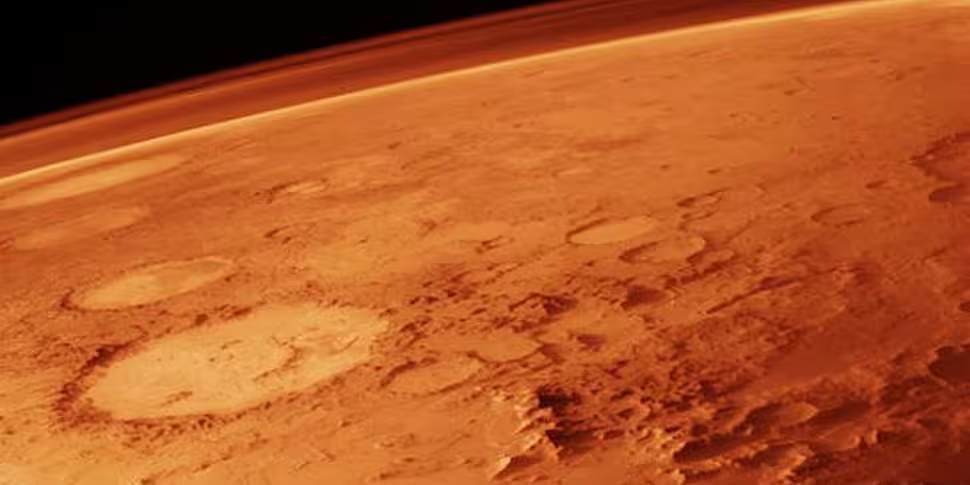The Mars One not-for-profit organisation are preparing to open applications very soon for their proposed mission to Mars. They’re hoping for one million applicants, and are already prepping to send four astronauts on a one-way trip in September 2022. However, Mars One is only one of several proposals to send people where no one has gone before.
Mars One
If you’re comfortable with the idea of leaving Earth for good in favour of being one of Mars’ first colonists, then Mars One is the mission for you. The plan is a long-term one, aiming to send a steady stream of astronauts to the planet to establish a settlement. If you’re over 18 and willing to endure the seven year training regime that will pre-empt your departure, then you’ll be able to send an application video sometime before the end of July – as long as you’re willing to pay around €20 for the privilege (the amount will vary depending on what country you’re living in).

(Image source: Mars One)
The planned human landing in early 2023 will follow a decade-long mission of unmanned supply trips to establish a basic colony (life support units, water & oxygen production etc ...). The initial four settlers will be followed by another crew of four every two years – Mars One are initially seeking 24 individuals for training. The entire process is intended to be broadcast as a ‘reality show’, both online and on television, with the revenue from the show heavily subsidising the costs of the mission.
However, with an estimated budget of €4.6 billion for the first mission alone (and a further $3 billion for every subsequent one), the Mars One mission is currently a long way from achieving its funding goals.
Inspiration Mars
Inspiration Mars Foundation are another non-profit group preparing a manned mission to our planetary neighbour – although they do not plan to land on the surface. Instead, the mission will send a pair of astronauts – a male & female – to within 100 miles of the Martian surface, and then use the planet’s gravitational influence to help propel the craft and its passengers back towards Earth. The mission’s launch target is January 2018, with that date intended to take advantage of a rare planetary alignment that will ensure a shorter trip to and from Mars.
Although the foundation acknowledge potential risks, they write that they “are steadfastly committed to the safety, health and overall well-being of our crew. We will only fly this mission if we are convinced that it is safe to do”.
Inspiration Mars are planning to finance the trip primarily through philanthropic donations and some government grants. It is supported by Dennis Tito, the multimillionaire who became the first ‘space tourist’ in his self-funded 2001 trip to the International Space Station.
NASA and other organisations
Michael D. Griffin of NASA suggested that his organisation would achieve a Martian landing by 2037. In 2010, President Obama officially cancelled a planned manned return to the moon, instead refocusing on a goal to land on an asteroid by 2025 in advance of proposed missions to Mars in the 2030s (with an initial orbital mission followed by a landing, similar to the Apollo missions). They have continued to plan and send unmanned missions to the planet, with MAVEN (Mars Atmosphere and Volatile EvolutioN) due to launch in late 2013. Their latest Mars Rover landed in August 2013.

Other major space exploration organisations such as the China National Space Administration and European Space Agency also have plans for further explanatory missions in preparation of manned missions. The ESA’s ongoing Aurora continues to send investigative craft to the planet.
Mars Drive, Mars Society and The Mars Initiative are some of the advocacy groups dedicated to promoting and supporting journeys to Mars, as well as its eventual settlement.
Concerns
Despite the plans to launch missions in the next ten years, uncertainty remains over the feasibility of a manned trip to Mars. The impact of long-term space travel on the human body are unclear, with scientists expressing concerns over the psychological & physical effects that could be caused by lack of gravity, isolation and increased exposure to radiation. It has also been suggested that the Martian landscape and atmosphere are simply unsuitable for human habitation.
Results of a study by the National Academy of Science were released this year, showing that sleep problems and depression were among the effects felt by participants in a simulated Martian environment. While two out of six participants coped well in the experiment, the other four experienced a variety of irregularities.
Other scientists have expressed concerns over the potential problems that could result from the exchange of material between Mars and Earth. Pathogens and other contamination could lead to minor and major damage to both humans and the planets themselves. Carl Sagan has written that “the likelihood that such pathogens exist is probably small, but we cannot take even a small risk with a billion lives.”
Dr Veronica Bray from the University of Arizona told the BBC "I have no doubt that we could physically place a human being on Mars. Whether they'd be able to survive for an extended period of time is much more doubtful.”









